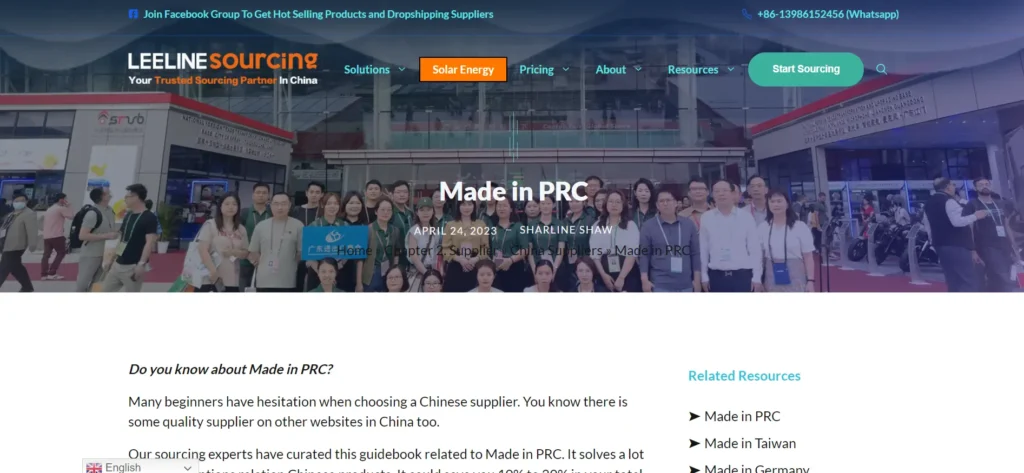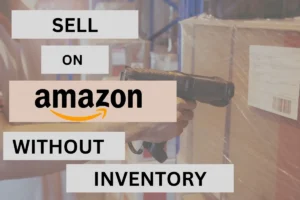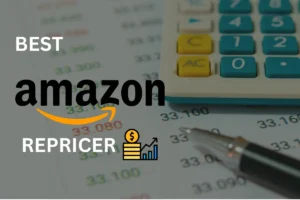Amazon FBA (Fulfillment by Amazon) has revolutionized the eCommerce business landscape. By alleviating the need to handle fulfillment, storage, and customer service, it offers sellers the opportunity to focus primarily on sourcing and marketing their products.
But as any seasoned Amazon Seller will tell you, the foundation of a successful FBA business lies in sourcing profitable products from reliable suppliers.
Why is Supplier Selection Critical?
Choosing the right supplier goes beyond just finding someone who offers products at the cheapest price. It involves:
- Ensuring consistent supply to maintain product listings and inventory levels.
- Guaranteeing product quality, which directly impacts customer reviews and return rates.
- Optimizing cost per item, which plays a significant role in determining profit margins.
- Ensuring compliance with safety regulations, especially when dealing with complex products or branded products.
Sourcing from unreliable Amazon FBA suppliers can lead to potential pitfalls, such as receiving counterfeit or low-quality goods, which can jeopardize your Amazon seller account.
Moreover, the wrong supplier might not meet Amazon’s stringent fulfillment fees and shipping process standards.
Where to Find Reliable Wholesale Amazon FBA Suppliers
There are three major places to find wholesale Amazon FBA suppliers. How you go about it will go a long way to verify their reliability.
Online Directories
Online directories can be a treasure trove for Amazon sellers. These platforms compile and categorize suppliers, offering an easy-to-navigate interface to explore and reach out to potential partners.
When considering online directories, focus on the following key platforms:
- Worldwide Brands: This directory boasts of a comprehensive product catalog with millions of products across a myriad of product categories. Every supplier in Worldwide Brands is certified, ensuring that you’re dealing with legitimate businesses. From brand-name products to unique items, it’s a solid place to begin your sourcing journey.
- SaleHoo: Another reliable name in the world of wholesale directories, SaleHoo offers access to 8,000+ pre-vetted suppliers. They also provide market research tools to help sellers spot product ideas with the most profit potential.
- Doba: What sets Doba apart is its integration feature. You can list a product on your automated Amazon store directly from Doba’s platform. Their catalog features millions of products, making the sourcing process more streamlined.
- ThomasNet: For those looking to source products from North America, ThomasNet is an invaluable directory. It lists thousands of manufacturers and suppliers in the USA, ideal for sellers wary of overseas shipping or wanting to capitalize on the ‘Made in USA’ label.
- Wholesale Central: This is one of the oldest wholesale directories on the internet. With thousands of suppliers across various product categories, Wholesale Central offers a straightforward and no-frills approach. It’s free to use and doesn’t require any registration.
- Alibaba: While primarily a B2B platform, Alibaba is a must-mention when talking about wholesale sourcing. Especially beneficial for those interested in private label products, Alibaba connects sellers with manufacturers, mainly in Asia. While it offers competitive prices, it’s crucial to vet suppliers rigorously and potentially consider third-party inspection services.
For those looking to streamline their operations, integrating tools like the Amazon Dropshipping Software can greatly enhance efficiency, particularly when managing inventory and order fulfillment directly from these platforms.
When using online directories, ensure to:
- Research Each Supplier: Go beyond the platform. Visit the supplier’s website, read reviews, and maybe even look for forums or groups discussing their services.
- Understand Pricing Models: Different suppliers on these platforms might have varied pricing structures. Some might offer prices close to retail, while others might provide genuine wholesale prices. Factor in potential overhead costs and calculate the potential profit for each product.
- Initiate Communication: Before making any decisions, reach out to potential suppliers. Gauge their responsiveness, willingness to answer questions, and overall customer service.
By thoroughly researching and making the most of these online directories, Amazon sellers can effectively find and partner with suppliers that align with their business models and product goals.
Trade Shows
Trade shows provide a unique opportunity for sellers to immerse themselves in the world of suppliers, manufacturers, and distributors.
These events gather businesses from specific industries to showcase their products, innovations, and capabilities to potential clients, partners, and competitors.
Why Attend Trade Shows?
- Face-to-Face Interactions: While online directories offer convenience, there’s nothing like a face-to-face meeting to establish trust. Interacting with suppliers directly allows you to gauge their professionalism, product quality, and commitment to client satisfaction.
- Discover New Product Ideas: Trade shows often feature the latest trends and innovations in the industry. Walking the exhibit hall can inspire new product ideas or variations that may not yet be saturated in the Amazon marketplace.
- Network with Industry Professionals: Beyond suppliers, trade shows attract a plethora of industry professionals. This environment is ripe for networking, potentially leading to invaluable business partnerships, insights, and advice.
- Educational Opportunities: Many trade shows host seminars, workshops, and keynote speeches from industry leaders. These sessions can provide knowledge about market trends, selling methods, retail prices vs. wholesale prices, and more.
Navigating Trade Shows Effectively:
- Plan Ahead: Before attending, research the exhibitors. Make a list of potential suppliers you’d like to meet, noting down questions or points of discussion. This ensures you utilize your time efficiently.
- Ask the Right Questions: Inquire about their minimum order quantity, lead times, shipping processes, and, of course, product pricing. Understanding the cost per unit and the potential sales volume can give you insights into potential profit margins.
- Collect Samples: Many suppliers at trade shows offer product samples. Collecting these allows you to assess product quality firsthand, making the sourcing decision easier.
- Follow Up: After the trade show, ensure to follow up with the suppliers you’ve met. This reiterates your interest and can initiate a lasting business relationship.
Popular Trade Shows for Amazon FBA Sellers:
- Canton Fair (China Import and Export Fair): Held in Guangzhou, China, it’s one of the largest trade shows globally, covering a wide range of product categories.
- ASD Market Week: Hosted in Las Vegas, this event brings together a vast assortment of merchandise, making it perfect for Amazon sellers of all types.
- Global Sources Trade Shows: Based in Hong Kong, these exhibitions focus on electronics, lifestyle products, and fashion, attracting suppliers and manufacturers primarily from China.
- National Hardware Show: If you’re into home improvement, DIY, or garden products, this Las Vegas-based trade show is a must-visit.
Remember, while trade shows offer a plethora of opportunities, they can be overwhelming. Approach them with a clear strategy, open-mindedness, and the intent to forge genuine, beneficial business relationships.
China-Based Platforms
China has long been recognized as the world’s factory, producing a vast array of goods that find their way to retailers globally.
As an Amazon FBA seller, understanding and navigating China-based platforms can give you a competitive edge, particularly when it comes to cost, variety, and scalability.
Why Source from China-based Platforms?
- Cost Efficiency: Chinese manufacturers often provide goods at significantly lower prices due to reduced labor and production costs. This can translate into higher profit margins for sellers.
- Variety: From electronics to textiles, toys to tools, Chinese suppliers offer an incredible range of products. This diversity allows FBA sellers to venture into various niches and product categories.
- Scalability: Chinese manufacturers are equipped to handle large orders, making it easier for sellers to scale their businesses as demand increases.
Popular China-based Platforms:
- Alibaba: The giant in the world of B2B platforms, Alibaba connects global buyers with manufacturers primarily in China. Whether you’re looking to source private label products or bulk items, Alibaba offers a wide variety. However, due diligence is essential; vet suppliers, ask for samples, and consider third-party inspection services.

- AliExpress: An offshoot of Alibaba, AliExpress is more B2C-focused but can be used for smaller wholesale orders. It’s ideal for sellers testing new product ideas without committing to large orders.

- Global Sources: A comprehensive platform that bridges the gap between international buyers and Chinese suppliers. What sets Global Sources apart is its emphasis on verified suppliers, ensuring a certain level of reliability.

- Made-in-China: The Made in China platform offers a wide array of products and focuses on connecting buyers with reputable and high-quality Chinese manufacturers, suppliers, and wholesalers.

- DHgate: While it’s more B2C-focused, many Amazon sellers use DHgate for smaller quantities, especially when starting out or testing a new product’s viability.

Navigating China-based Platforms Effectively:
- Research and Vetting: Not all suppliers are created equal. Look for verified sellers, read reviews, and always request samples. Be wary of deals that seem too good to be true.
- Negotiate: Chinese suppliers often expect negotiations. Don’t accept the first price offered. Discuss terms, MOQs (Minimum Order Quantities), and payment methods to get the best deal.
- Understand Cultural Nuances: Building a strong relationship with suppliers is beneficial. This often means understanding and respecting cultural nuances in communication and business etiquette.
- Payment and Shipping: Always use secure payment methods. Familiarize yourself with shipping terms like FOB (Free On Board) and EXW (Ex Works) to ensure clarity in shipping responsibilities and costs.
- Third-party Inspections: Especially for larger orders, consider hiring third-party inspection services to check product quality before shipment. This step can prevent potential issues and losses.
Things To Consider in an Amazon FBA Supplier
- Type of Products: Understand the types of products they offer. Are they brand-name products, private label products, or generic bulk products?
- Price Point: While the lowest price is enticing, it’s crucial to factor in overhead costs and ensure that the average price per unit guarantees potential profit. Also, make sure you are getting high-quality products without compromising on price.
- Minimum Order Quantity (MOQ): Especially for new sellers, high MOQs can be a barrier. Negotiate this to align with your sales estimator and projected sales volume.
- Shipping and Handling: Analyze the shipping process. How do they ship products? Can they send to Amazon’s fulfillment centers directly?
How to Vet a Potential Supplier
- Sample Orders: Before placing a bulk order for thousands of products, ask for a sample. This will give insight into product quality and the supplier’s efficiency. Once you assess the quality don’t just stop there, ensure that the supplier can deliver consistent quality, especially for repeat orders.
- Reviews and Reputation: Check for reviews online. Feedback from other wholesale sellers can be enlightening.
- Communication: A supplier’s customer service quality can indicate the health of your future business relationship.
- Production and Lead Time: Ensure that the supplier has the capacity to handle your volume requirements, especially during peak seasons. A supplier should also be able to produce and ship products within a time frame that aligns with your inventory needs.
- Visit Them: If possible, especially when dealing with high-value items, visiting a potential supplier’s location can provide invaluable insights into their operations and supply chain. If you can’t visit yourself, consider hiring a third-party service to conduct a factory audit.
- Respect for IP: This is especially relevant if you’re dealing with private label products, ensure the supplier respects intellectual property rights and won’t sell your custom-designed products to competitorss
To further enhance the capabilities and efficiency of your Amazon FBA operations, consider integrating the Amazon Seller Extension. This tool can provide valuable insights into market trends and automate various tasks, making your business more dynamic and responsive to market changes.
Conclusion
In conclusion, whether you’re into private label selling, wholesale models, or even retail arbitrage, the right supplier is pivotal. The success of your Amazon FBA business hinges not just on the types of products but also on sourcing those products smartly.
Prioritize product quality, ensure a consistent supply, and always be on the lookout for potential products that align with market demand and offer competitive pricing.
Recommended reading: 17 Top Online Arbitrage Websites for Product Sourcing






